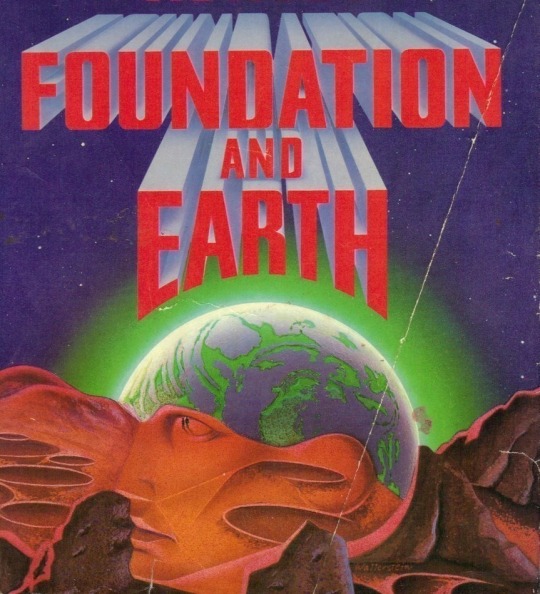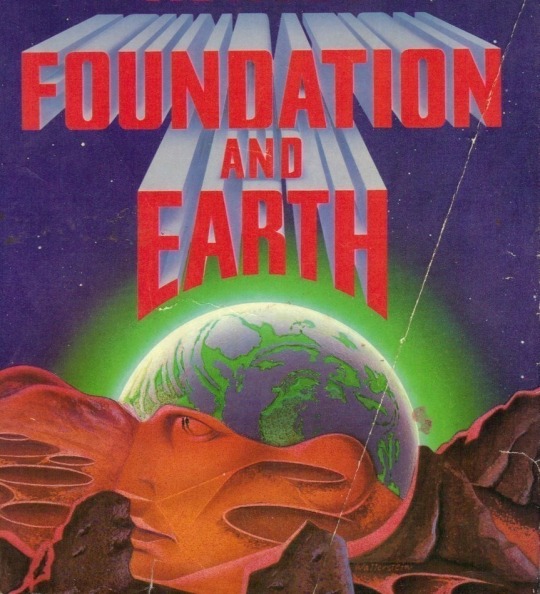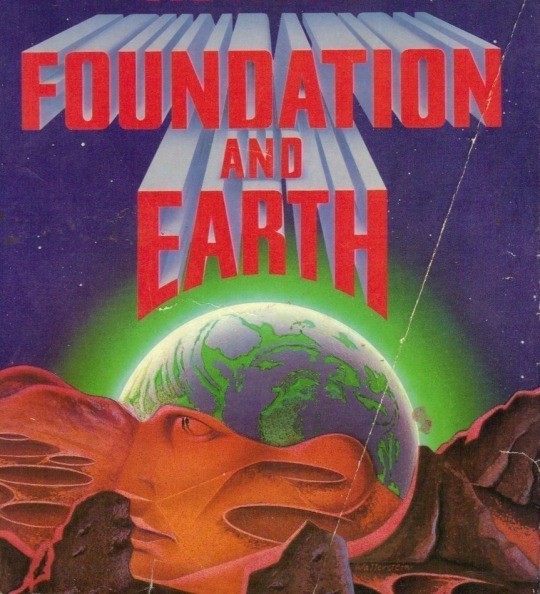#Alan Wallerstein
Text
Damon Herriman will play a part in the new Robbie Williams Musical movie about his life.
EXCLUSIVE: Principal photography has begun on Better Man, and Deadline has the first image from production. This is the musical feature film based on the life of singer Robbie Williams, with Australian filmmaker Michael Gracey at the helm. Gracey’s debut film, The Greatest Showman, grossed over $435M at the global box office.
Williams makes his feature debut playing one of the iterations of himself, of which there are several. Another is played by rising UK star Jonno Davies (Hunters, Kingsman: The Secret Service), who plays Williams throughout his younger adult life, with British stage and screen veterans Steve Pemberton (Inside No. 9, Killing Eve) and Alison Steadman (The Kings Man, Roald & Beatrix). The film’s Australian cast includes Damon Herriman (Judy & Punch), Kate Mulvany (Elvis) and Anthony Hayes (War Machine).
Currently filming in Melbourne, Australia, Better Man is an introspective look at the rise, fall and resurrection of UK superstar Robbie Williams, one of the bestselling artists of all time. From his humble upbringing in Stoke-On-Trent, England, Williams was catapulted to fame in the early nineties at the tender age of fifteen, as a founding member of the era’s biggest British boy band. The singer found further success as a solo artist, with 11 out of 12 of his studio albums charting number one in the UK. Better Man aims to give audiences a powerful and unique insight into how Williams sees himself and the demons he has battled both on and off stage. Gracey will bring light to the incredible highs and lows of a rock star’s journey by satirizing moments inspired by the artist’s life story. The fantastical musical will be filled with reimagined versions of Williams’ hit music, dancing, and spectacular sets melded with stunning visual effects created by the team at Weta FX.
International sales are being handled by Rocket Science.
Gracey is repped by CAA, Partizan, and Hirsch Wallerstein; Williams is CAA and ie:music ltd. Davies is Denton Brierley, Gersh, Alan Siegel Entertainment and attorney Lucy Popkin.
Deadline.com
6 notes
·
View notes
Photo

Alan Wallerstein https://ift.tt/Td1IAXh
0 notes
Photo

Almanya’da Müslüman belediye başkanı adayı tepkiler nedeniyle çekildi Ülke basınında yer alan haberlere göre, Türk kökenli iş adamı Şahin, 15 Mart'ta yapılacak Bavyera yerel seçimlerinde Wallerstein beldesi belediye başkanlığı için Hristiyan Sosyal Birlik Partisi'nden (CSU) aday oldu.
0 notes
Text
Expert: Two of my regular readers sent me indications that I was not clear in my explanation of what I was talking about when I spoke of unacceptable compromises.
I shall attempt to answer their queries and objections. Let me start by reproducing what they sent me.
The first was a query from Alan Maki who had one concern which was the word: “compromise.” I reproduce it here: “What are you talking about compromising on?”
The second email was from Mike Miller whose query was much longer.
Let me respond to each of them. I know that the author of this query was an activist in the Ontario Labour Party and devoted much energy to obtaining the victory of the Labour Party, which he saw as a rejection of the parties of no change. They rotated between the Center Left and a Center Right version of changeless policies. Analytically my correspondent interpreted the electoral victory of the Labour Party as a demand for significant change.
Mike Miller said that the successful creation of a strong union called The International Longshore and Warehouse Union (ILWU) over the past twenty or fifty years, despite all the attempts to crush it, is evidence that change is possible.
The victory of the Ontario Labour Party and the ability of the ILWU to beat back all attempts to crush it are evidence that change is possible and cannot be called unacceptable.
Both objections miss the point. I do not deny that the electoral victory of the Labour Party was a great achievement. I salute it and do so publicly as a wonderful achievement. I do not deny that the ability of the ILWU to resist all the many attempts to crush it is a great achievement. I salute it.
This is precisely the point why these are compromises are unacceptable. Not everybody who lives in Ontario, Canada, will benefit by the achievement of the electoral victory of the Labour Party. There will be losers. There are those who are outside this party’s structure in Ontario or outside any party structure whatsoever. They gain nothing and may lose something by the victory of the Ontario Labour Party.
I do not deny that the ability of the ILWU to beat back all the many attempts to crush it was a great achievement. Nonetheless it is unacceptable because persons who are not members of the ILWU are excluded from its benefits and therefore are not included in the favorable results of the ILWU.
So, I repeat, every achievement involves militancy, but also short-run compromises as can be seen by reading the history of the ILWU (see in the network for the item entitled The ILWU Story).
The achievements in both cases were enormous. The benefits were and will be enormous. But precisely for this reason benefits have to be assessed against the balance of the exclusions that the benefits brought.
Following the situation in each case shows that to achieve what they did achieve involved compromises. This may be the benefit of the struggle, but the necessary compromises that are unacceptable because they exclude others were part of the achievement and those necessary compromises made possible the achievements.
The post Unacceptable compromises: A clarification appeared first on Immanuel Wallerstein. http://clubof.info/
0 notes
Text
Sosyologlar Listesi
Alman Sosyologlar
Amitai Etzioni
Ulrich Beck
Erich Fromm
Franz Oppenheimer
Friedrich Pollock
Jürgen Habermas
Hans Freyer
Johann Gottfried Herder
Joachim Wach
Karl Mannheim
Leopold von Wiese
HerbertMarcuse
Karl Marx
Max Horkheimer
Niklas Luhmann
Ralf Dahrendorf
Max Ferdinand Scheler
Alfred Schmidt
Georg Simmel
Theodor W. Adorno
Ferdinand Tönnies
Max Weber
Werner Sombart
Amerikalı Sosyologlar
Jane Addams
Gary Becker
Robert N. Bellah
Peter Ludwig Berger
C. Wright Mills
Charles Tilly
Charlotte Perkins Gilman
Daniel Bell
Douglas Harper
William Edward Burghardt Du Bois
Elaine Showalter
Erich Fromm
Gary Alan Fine
Florian Znaniecki
Herbert J. Gans
Aron Gurwitsch
Harold Garfinkel
Eric Hoffer
Judith Lorber
Karen Barkey
Manuel Castells
Herbert Marcuse
Michael Kimmel
Nancy Chodorow
Nathan Glazer
Huey P. Newton
Talcott Parsons
Patricia Hill Collins
Ray Oldenburg
Richard Sennett
Robert K. Merton
Nouriel Roubini
Saskia Sassen
Seymour Martin Lipset
Sidney Tarrow
Pitirim Sorokin
Thorstein Veblen
Immanuel Wallerstein
Avusturyalı Sosyologlar
Arno Tausch
Alfred Schütz
Othmar Spann
Belçikalı Sosyologlar
Chantal Mouffe
Brezilyalı Sosyologlar
Fernando Henrique Cardoso
Luiz Felipe Lampreia
Britanyalı & İngiliz Sosyologlar
Ann Oakley
Bob Jessop
George Eliot
Anthony Giddens
John Urry
Jeff Hearn
Madan Sarup
Alfred Radcliffe-Brown
Ralf Dahrendorf
Herbert Spencer
Çek Sosyologlar
Tomáš Garrigue Masaryk
Fransız Sosyologlar
Alain Touraine
Raymond Aron
Jean Baudrillard
Pierre Bourdieu
Auguste Comte
Dominique Schnapper
Claude Dubar
Émile Durkheim
Michel Foucault
Georges Perec
Gustave Le Bon
Henri Lefebvre
Loïc Wacquant
Marcel Mauss
Maurice Hauriou
Maxime Rodinson
Michel de Certeau
Montesquieu
Edgar Morin
Paul Fauconnet
Pierre Guillaume Frédéric le Play
Raymond Boudon
Roger Establet
Alexander Rüstow
Claude Henri de Saint Simon
Gabriel Tarde
İspanyol Sosyologlar
Manuel Castells
İtalyan Sosyologlar
Donatella della Porta
Maurizio Lazzarato
Gaetano Mosca
Vilfredo Pareto
Kanadalı Sosyologlar
Dorothy E. Smith
Kıbrıs Türkü Sosyologlar
Niyazi Berkes
Ulus Baker
Kolombiyalı Sosyologlar
Camilo Torres
María Teresa Uribe
Macar Sosyologlar
Karl Mannheim
Norveçli Sosyologlar
Johan Galtung
Perulu Sosyologlar
José Carlos Mariátegui
Polonyalı Sosyologlar
Zygmunt Bauman
Florian Znaniecki
Joseph Hieronim Retinger
Leszek Kołakowski
Ludwik Krzywicki
Rumen Sosyologlar
Dan Lungu
Rus Sosyologlar
Andrey Korotayev
Pyotr Lavrov
Pitirim Sorokin
Sloven Sosyologlar
Ales Debeljak
Türk Sosyologlar
Âmiran Kurtkan Bilgiseven
Can Kozanoğlu
Dicle Koğacıoğlu
Emre Kongar
Enver Aysever
Erol Güngör (sosyal psikolog)
Fatma Barbarosoğlu
Fatma Meral Horne Sever
Fethi Açıkel
Fulya Gürses
Ziya Gökalp
Hasan Ünal Nalbantoğlu
Haşmet Babaoğlu
Hilal Kaplan
Hüsamettin Arslan
İbrahim Müteferrika
İsmail Beşikçi
Kadir Cangızbay
Çiçek Kahraman
Mehmet Eymen
Mehmet Yüksel (sosyolog)
Meral Akkent
Mine G. Kırıkkanat
Mübeccel Kıray
Nermin Abadan Unat
Neşe Özgen
Niyazi Berkes
Nuri Bilgin
Özer Ozankaya
Mehmet Cihat Özönder
Prens Sabahaddin
Sabri Ülgener
Pınar Selek
Sencer Ayata
Seyhan Kurt
Seyyid Ahmet Arvâsî
Sezer Ateş Ayvaz
Şerif Mardin
Taner Akçam
Tülay Uğuzman
Bahriye Üçok
Ümit Meriç
Ünsal Oskay
Veli Saçılık
Volkan Aytar
Yakın Ertürk
Zeynep Tüfekçi
Ziyaeddin Fahri Fındıkoğlu
Ugandalı Sosyologlar
Okot p'Bitek
Yahudi Sosyologlar
Raymond Aron
Émile Durkheim
Yunan Sosyologlar
Nikos Pulancas
www.bipoloji.com/sosyologlar
#bipoloji#sosyoloji#sosyologlar#efsane sosyologlar#en iyi sosyologlar#yaşayan sosyologlar#tarihi sosyologlar#sosyolog#yaşamış sosyologlar
0 notes
Text
Kaos ve Belirsizlik
Kaos ve Belirsizlik
Immanuel Wallerstein
Kopernik Kitap
Immanuel Wallerstein’ın 1950’lerden itibaren başlayan yazı hayatı neredeyse 70 yıla yaklaşmaktadır. Soğuk Savaş yılları sırasında Amerika’daki McCartism üzerine yaptığı master tezi ile başlayan yazı ve düşünce hayatı genişleyerek devam etmiş ve bir süre sonra Batı dışı toplumlara, özellikle Afrika çalışmalarına yönelmiştir. 1970’lerden itibaren kendini son beş asrın dünya tarihindeki gelişmeleri anlamaya adamıştır. 1974’te ilk cildini yayımladığı ve hâlen devam eden en önemli çalışması The Modern World System’de, dünya tarihinde ilk defa ortaya çıkan bir dünya sisteminin oluşumunu incelemektedir. Wallerstein, bütün enerjisini ve analizlerini bu sistemi anlamaya ve gelecekte olanları tahmin etmeye adamış önemli bir düşünce insanıdır.
Bu kitapta yer alan yazılar, Wallerstein’in son iki yılda (Ocak 2016-Aralık 2017) kaleme aldığı siyasî/ekonomik analizlerinden oluşmaktadır. Orta Doğu’dan Çin’e, Fransa’dan Peru’ya ve Trump’tan Erdoğan’a kadar çok geniş bir yelpazeyi kapsayan bu metinler, yazarın temel tezlerini günlük analizlerine nasıl yansıttığını göstermesi bakımından son derece kıymetlidir.
Yazarı Sizekitap’da Ara
Yazarı Twitter’da Ara
Kitabı Twitter’da Ara
Yazarı Facebook’ta Ara
Kitabı Facebook’ta Ara
devamı burada => https://is.gd/bfZarM
0 notes
Text
Çevrenin İmparatorluğu Rusya ve Dünya Sistemi Ebook
Çevrenin İmparatorluğu Rusya ve Dünya Sistemi
Immanuel Wallerstein tarafından ortaya atılan Dünya Sistemleri Analiz’e göre,dünyadaki tüm ekonomiler ve toplumlar birbirlerine organik bir şekilde bağlıdırlar.merkezde yer alan,gelişmiş ve erken kapitalistleşmiş ülkeler,sermaye transferine ihtiyaç duyan az gelişmiş ülkelerin kaynaklarını kendi çıkarları adına merkezde yer alan ve dünya ekonomik sistemini yöneten ülkelerin etrafında onlara bağımlı pasif çevre ülkeleri oluşmaktır.
Çevrenin İmparatorluğu Rusya ve Dünya Sistemi Ebook
#Çevrenin İmparatorluğu Rusya ve Dünya Sistemi ebook#Çevrenin İmparatorluğu Rusya ve Dünya Sistemi ebook indir#Çevrenin İmparatorluğu Rusya ve Dünya Sistemi ebook oku#Çevrenin İmparatorluğu Rusya ve Dünya Sistemi kitabı ebook#Çevrenin İmparatorluğu Rusya ve Dünya Sistemi kitabı ebook indir#Çevrenin İmparatorluğu Rusya ve Dünya Sistemi kitabı ebook oku
0 notes
Text
Çevrenin İmparatorluğu Rusya ve Dünya Sistemi
Çevrenin İmparatorluğu Rusya ve Dünya Sistemi
Immanuel Wallerstein tarafından ortaya atılan Dünya Sistemleri Analiz’e göre,dünyadaki tüm ekonomiler ve toplumlar birbirlerine organik bir şekilde bağlıdırlar.merkezde yer alan,gelişmiş ve erken kapitalistleşmiş ülkeler,sermaye transferine ihtiyaç duyan az gelişmiş ülkelerin kaynaklarını kendi çıkarları adına merkezde yer alan ve dünya ekonomik sistemini yöneten ülkelerin etrafında onlara bağımlı pasif çevre ülkeleri oluşmaktır.
Çevrenin İmparatorluğu Rusya ve Dünya Sistemi
#Çevrenin İmparatorluğu Rusya ve Dünya Sistemi ac#Çevrenin İmparatorluğu Rusya ve Dünya Sistemi ebook#Çevrenin İmparatorluğu Rusya ve Dünya Sistemi indir#Çevrenin İmparatorluğu Rusya ve Dünya Sistemi kitabı pdf#Çevrenin İmparatorluğu Rusya ve Dünya Sistemi pdf#Çevrenin İmparatorluğu Rusya ve Dünya Sistemi pdf indir#Çevrenin İmparatorluğu Rusya ve Dünya Sistemi pdf oku
0 notes
Text
The Contradiction of capitalism
Few of the super-rich are scientists or inventors who have reshaped our understanding of our abilities and of the world around us. Think of Alan Turing whose mathematical genius provided the basis for much of our modern computer systems. Think of Watson and Crick who unravelled DNA. Think of Brattain and Shockley who invented transistors. So why are they not rich? And what is the contradiction here? Thomas Piketty and Joseph Stiglitz view capital as at least partly to blame, or at least the way our economic systems treat it.
Piketty argues that the beginning of this century once again saw r>g in the US and to a degree in Britain as well. Where r= average annual rate of return on capital (e.g. profits, dividend and rent), and g= the rate of growth of the economy. The argument is that wealth is growing quicker than wages or output. Few economics aside from those in the process of transitioning to a developed one e.g. China, can expect to achieve more than 2% growth, or at least certainly not the 4-5% increase as in wealth. The entrepreneur becomes a rentier, relying on their capital and increasingly dominant over those who have nothing to offer but their labour. This leads to a divergence in the economy as the wealth distribution becomes more unequal. Taken further and with an eye on history one could therefore argue that immense wealth inequalities “have little to do with entrepreneurial spirit and are of no use in promoting growth” ([1] page 571). Nor is it of any “common utility” to borrow a phrase from the 1789 Declaration of the Rights of Man and the Citizen.
However we are warned that indiscriminate capital tax would reduce incentives to those who are indeed entrepreneurs and those who are not acting in the role of a rentier. Instead Piketty advocates a progressive annual tax on capital to avoid an endless spiral towards an increasingly inegalitarian society, whilst preserving competition and incentives. Stiglitz backs up this view in his argument that the right wing in the US have overestimated the costs to incentives of progressive taxation and have underestimated the possible benefits. Indeed Stiglitz places particular emphasis on rent seeking and its links to inequality in his work. [4]
In 2016 Oxfam claimed that 62 people own the same wealth as the poorest half of the world’s population [2], and in 2017 revised that number down to 8 [3] (although the 2nd figure is somewhat disputed). In light of Wallerstein’s “world systems theory”* [5] if such ideas as rent seeking are applied to the global economic system one is left to question if global inequalities will become further entrenched as we turn towards the future.
*The idea that the global economic system has “core” countries with highly developed technology and high wages, and “periphery” countries with primary product based exports and lower wages. The periphery countries are kept in a place of dependency on the core via their exploitation. A neo-Marxist theory in which the core could be seen much like a global bourgeoisie and the periphery as the global proletariat.
Clemmie Rimmer
[1] Thomas Piketty: 2013: Capital in the Twenty-First Century: Harvard University Press
[2] http://www.oxfam.org.uk/media-centre/press-releases/2016/01/62-people-own-same-as-half-world-says-oxfam-inequality-report-davos-world-economic-forum
[3] http://www.bbc.co.uk/news/business-38642612
[4] Joseph E Stiglitz: 2013: The Price of Inequality: Penguin Books
[5] Andrew Heywood: 2011: Global Politics: palgrave foundations
[6] https://anticap.files.wordpress.com/2013/06/ss-120502-1percent-03-ss_full.jpg
0 notes
Photo

Alan Wallerstein
231 notes
·
View notes
